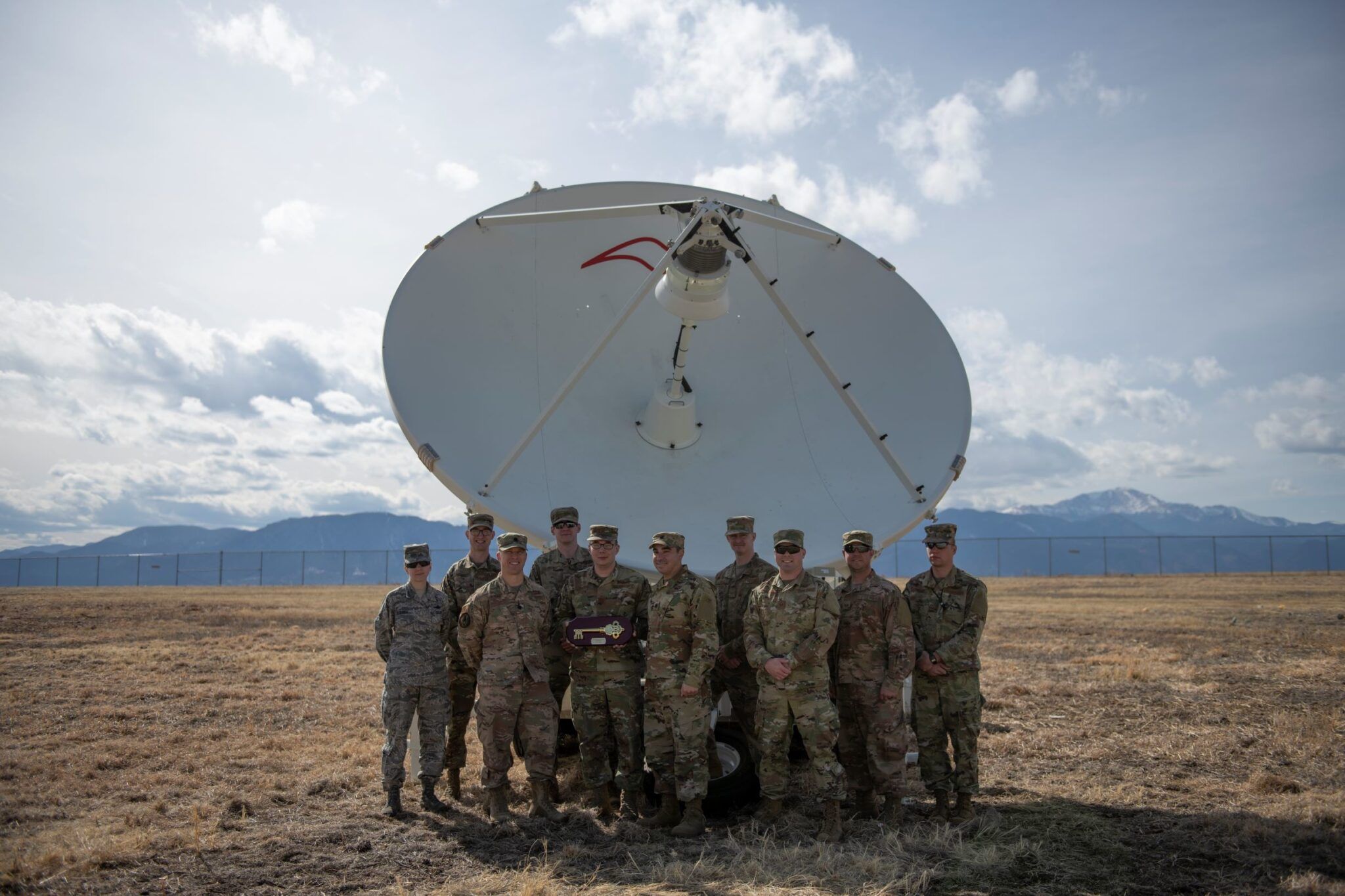
Space Force’s Operational Anti-Satellite Weapon
Article by Thom Dunn March 8, 2021 (boingboing.net)
• In May 2020, Secretary of Defense Mark Esper said Space Force was necessary because “our adversaries in the last several years have weaponized space. They’ve made it a warfighting domain.” It has been assumed that Space Force is unique among US military branches in that it has no overt space weapons. But creating a branch of the military for the explicit purpose of war in space suggests that the US is planning for more in space than it is disclosing.
• Military technologist Kelsey Atherton pointed out in Slate online magazine, however, that Space Force does in fact have one publicly disclosed space weapon: the “Counter Communications System Block 10.2. or ‘the jammer’ (pictured above). The jammer is a device on Earth that is able to jam satellite data communications in low earth orbit. (see article here). Space Force describes it as: “a transportable space electronic warfare system that reversibly denies adversary satellite communications”. Becoming operational on March 9, 2020, the jammer is a way to exert hostile control over other objects in orbit, both civilian and military, without blowing them up (and creating space debris). The US military considers the jammer a space weapon.
• In the ‘traffic cop’ version of the Space Force, it is less a military branch fighting wars than a military branch that sees itself as enforcing the day-to-day law in space orbit – whether they be satellites owned by countries or companies. The Space Force intends to exercise dominion over both. Space Force doesn’t even need to do anything with the jammer device. Its mere existence is an act of aggressive defense, which infers that a course is set for extending terrestrial conflicts into space. And there’s no turning back from that.

I’ve been following the work of military technologist Kelsey Atherton for years, and I’ve always enjoyed his insights into the most fascinating and horrifying aspects of the defense industry. In a recent article for Slate’s Future Tense section, Atherton explored the theoretical future of Space Force, and how the Biden administration could potential handle the Trump administration’s curious sci-fi vanity project. He then expounded upon the topic in his newsletter.
I’ve always enjoyed his insights into the most fascinating and horrifying aspects of the defense industry. In a recent article for Slate’s Future Tense section, Atherton explored the theoretical future of Space Force, and how the Biden administration could potential handle the Trump administration’s curious sci-fi vanity project. He then expounded upon the topic in his newsletter.

Initially, Atherton had written in Slate: The Space Force is unique among military branches in that it has no (publicly acknowledged) weapons. Nevertheless, creating a new branch of the military for the explicit purpose of war in space suggests to other countries that the United States is planning for more in orbit than it is disclosing. Treating satellites like forts and orbits like territory risks war and, ultimately, the destruction of orbit as a useful space.
While the Pentagon has not adopted Trump’s exact language on the Space Force, in May 2020

Secretary of Defense Mark Esper said Space Force was necessary because “our adversaries in the last several years have weaponized space. They’ve made it a warfighting domain.”
But, as he acknowledged in his newsletter, this was a mista
ke—one that could potentially change the future of the Space Force: “I, in my error, initially filed a story claiming Space Force has no publicly disclosed weapons. It in fact has one: the “Counter Communications System Block 10.2,” a kind of jammer o̶n̶ ̶a̶ ̶s̶a̶t̶e̶l̶l̶i̶t̶e̶, that became operational March 9th, 2020. As weapons go, jammers sit above compromised computers and below blown-up objects, so while it doesn’t have the same immediate threat of a space gun, it matters that the Space Force sees it as a weapon and wants to talk about it as such.”
FAIR USE NOTICE: This page contains copyrighted material the use of which has not been specifically authorized by the copyright owner. ExoNews.org distributes this material for the purpose of news reporting, educational research, comment and criticism, constituting Fair Use under 17 U.S.C § 107. Please contact the Editor at ExoNews with any copyright issue.
‘the jammer’, Counter Communications System Block 10.2., Kelsey Atherton, Mark Esper, space force